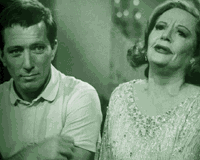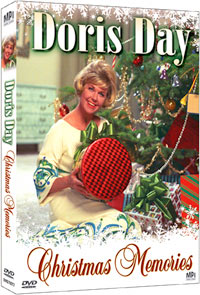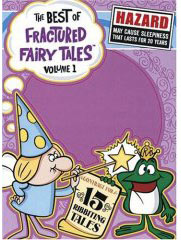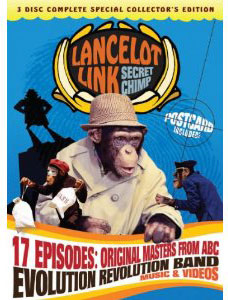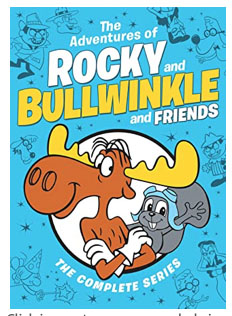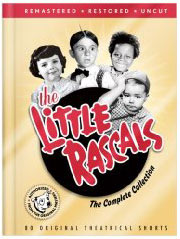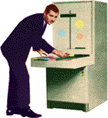 |
Get it here! SAVE MONEY |
||||||
 |
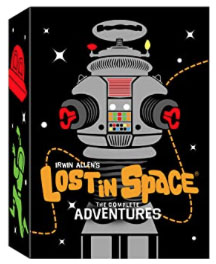 |
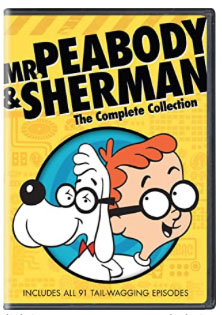 |
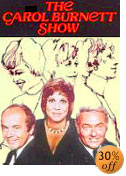 |
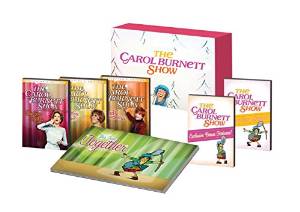 |
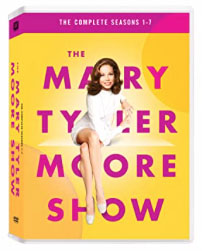 |
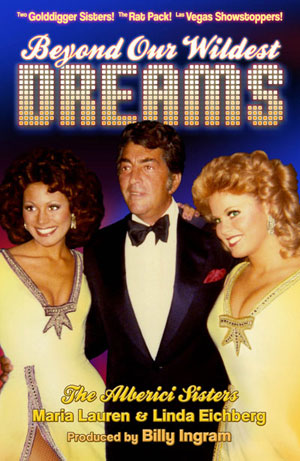 RAT PACK GOLDDIGGERS
RAT PACK GOLDDIGGERS |
|
|
She was outrageous and outspoken on stage and in public. "Cocaine isn't habit-forming," the actress was quoted as saying, "I should know - I've been using it for years." And she had! If you've ever seen a flamboyant, bitter drag queen, you're looking at Tallulah Bankhead's residual energy on this planet. Considered one of the most important dramatic actresses of the theater and screen, by 1941 the newly divorced actress was looking back at a decade of flops in both arenas.
With few good parts being offered, Miss Bankhead turned to guest-starring on popular radio programs like The Fred Allen Show and Duffy's Tavern, where she would parody her over-the-top persona to great comic effect. One particular skit on the Fred Allen Show, a parody of cheerful morning programs, was such a hit it was repeated five times. Radio audiences weren't particularly sophisticated in the forties, any slurring of speech due to intoxication easily blended with her husky, lurching speech affectation. That raspy voice was a product of an overindulgent lifestyle - and smoking up to 150 Craven A cigarettes a day. Whenever she felt her voice giving out, she sprayed her tonsils with a self-blended cocaine based concoction. This was a woman who couldn't stop partying, apparently - entertaining even while she was on the toilet or in the bath. A friend once said "Tallulah can not only talk till the cows come home, but while they're being milked, given hay, put to bed in their stalls and until they wake up the next morning." She was big box office on the stage and on the road. "Tallulah's name on a contract is $250,000 in the bank," one of her theatrical producers was quoted as saying in 1950. Multiply that sum by fifteen times (for today's dollars) and you'll understand why Tallulah's behavior was indulged. After touring the country for years in the Noel Coward play Private Lives, Tallulah embarked on one of her greatest successes in 1950 - as the MC of NBC Radio's The Big Show. This was a Sunday night, ninety minute parade-of-stars spectacular with Tallulah front and center as the hostess. At first she thought the show was going to be a career ending mistake, that she would be constantly upstaged. "When I realized - the day before we went on the air - that I could be my old, dry caustic self introducing my fellow stars, I decided to employ whatever wit was within me to cement the proceedings together." Practically every star in the universe went before the Big Show microphone, superstars like Groucho Marx, Bob Hope, Judy Holliday, Jimmy Durante, Ethel Merman, Clifton Webb and many others. Tallulah (and the program) was a hit, even drawing viewers away from their new TV sets. For her troubles, the star was pulling a cool salary of $10,000 a week (20% of the show's entire budget).
The trial turned into a media circus (fifties-style) with shocking allegations coming out about the star. "She was never sober, or rarely so," the housekeeper told the court. "She spent a fortune, enough to send your kids to college... on cocaine, marijuana, booze and scotch and champagne." She also testified that she had to learn to roll Miss Bankhead's joints just so. Good help is SO hard to find! The housekeeper used every opportunity to reveal as many lurid details of the actress' private life as possible and the tabloid movie mags had a field day. But then, Tallulah herself rarely held back with reporters, once saying at a press conference, "I'm glad to see there's a man here from the New York Times because if I say 'goddammit', they will print it 'good heavens' or 'good gracious'." When asked, "What is your opinion of love, Miss Bankhead?" she replied, "Love? Do you mean fucking?" In his memoirs, film director Robert Lewis stated that, besides liquor and pot, Tallulah often partied with "some witch's brew concocted of Coca Cola and spirits of ammonia. For an additional high, she popped and sniffed some odd capsules that her sister Eugenia insisted were used to revive horses that slipped and fell on the winter ice." As you might expect, her sex life was equally scandalous, at one time employing a full-time Gigolo (who was black, Talullah was raised in the Old South) and bedding a wide range of Hollywood legends including Yul Brenner, John Barrymore, Greta Garbo, Billie Holliday and Hattie McDaniel (Mammy in Gone With The Wind). Her longest lasting relationship was with fellow actress Estelle Winwood. NBC brought the Big Show concept to television with the All-Star Revue in 1952, featuring a rotating slate of hosts including Martha Raye, Jack Carson, Danny Thomas and Ed Wynn among others. After the Big Show was cancelled in 1953 (the lure of TV was too great - radio was dead), Tallulah hosted five episodes of All-star Revue's second and last season. Soon after she appeared on The U.S. Steel Hour in a rare dramatic production of Ibsen's Hedda Gabler. She was also seen at The Sands Hotel in Vegas in a musical revue and in several Broadway productions, none of them terribly successful.
Opting for some measure of privacy, Tallu chose to be filmed at a luxurious Hotel in New York instead of her home.
When asked on the show to describe herself she replied, "Divinely impossible." Throughout the rest of the fifties and sixties, Tallulah Bankhead made a flurry of guest appearances on television variety shows and comedy specials, generally spoofing her "Daaaahhhhling" image. The TV audience responded well to this reckless Diva. In 1957 alone, she appeared on more than a half-dozen different programs, from Shower of the Stars to The Steve Allen Show - but it was her guest appearance that year on the second hour-long Lucy-Desi Comedy Hour that remains a TV classic to this day.
By the mid-sixties, failing health (and severe alcoholism) forced the lady to cut back on performing.
On the Andy Williams Show, looking older and frailer than previously, Tallulah was clearly in her cups - having some trouble lip-synching the song and virtually staggering down the stairway in the opening musical number.
Merv Griffin described Tallulah's appearance on his talk show this way: "She was on the show with Margaret Truman, who at one point started discussing the reluctance of American women to reveal their age. 'I don't think we should make such a big thing about it,' she said. 'I'm quite willing to say that I'm forty-three years old.' Tallulah gasped, 'Oh please, dahling,' and pointed to the camera. 'People are eating!'"
As to why she insisted on calling everyone "dahling": "Because all my life I've been terrible at remembering people's names. I once introduced a friend of mine as Martini. Her name was actually Olive."
|
Your Classic TV Blog!
"My father warned me about men and
booze but he never mentioned a word about women and cocaine." "I'm as pure as the driven slush." "It's one of the tragic ironies of
the theater that only one man in it can count on steady work
-- the night watchman." To a young actress: "Oh, my God, cranberry
juice? When I was 16, dahling, I had a shoebox full of cocaine."
|
|
|
TV
on DVD
|
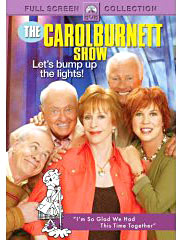 |
 |
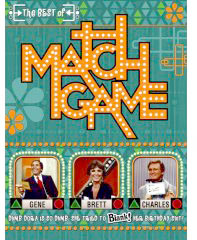 |
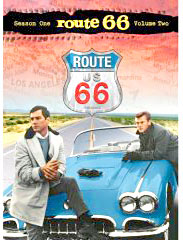 |
 |
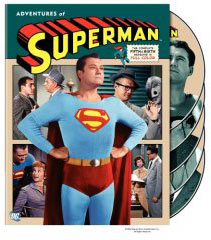 |
|
|
||||||||||||||
| Everything
you're looking for is right here: Save money! |

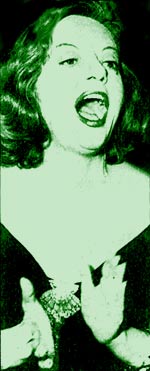 Tallulah
Bankhead was one of the rare silent film stars that successfully made
the transition to talkies, then radio and television. She became a
Tallulah
Bankhead was one of the rare silent film stars that successfully made
the transition to talkies, then radio and television. She became a 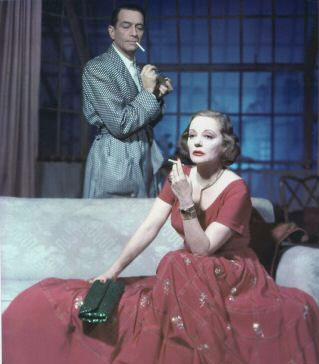 Trouble
was, this lady liked to drink. A lot. Unrestrained public displays
and much-too-frank interviews alienated her from the mainstream. However
blitzed she was, she was a consummate professional. Heavy drinking rarely
adversely affected her stage performances, and if it did, there was
always tomorrow night.
Trouble
was, this lady liked to drink. A lot. Unrestrained public displays
and much-too-frank interviews alienated her from the mainstream. However
blitzed she was, she was a consummate professional. Heavy drinking rarely
adversely affected her stage performances, and if it did, there was
always tomorrow night.
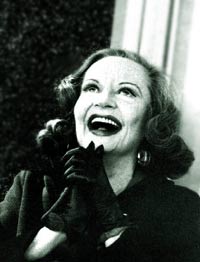 In
1951, riding a new wave of popularity, Tallulah ended up in court -
suing her former housekeeper for embezzlement.
In
1951, riding a new wave of popularity, Tallulah ended up in court -
suing her former housekeeper for embezzlement.
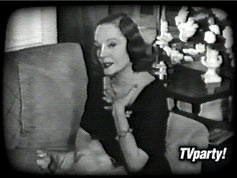 In
the early-fifties she consented to appear on the TV show that terrified
her the most,
In
the early-fifties she consented to appear on the TV show that terrified
her the most, 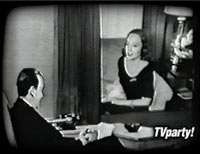 Despite
knowing all the questions in advance, she was noticeably nervous before
the unblinking camera as she toured her suite showing Ed the mementos
of a lifetime, trying to keep the stories family-friendly.
Despite
knowing all the questions in advance, she was noticeably nervous before
the unblinking camera as she toured her suite showing Ed the mementos
of a lifetime, trying to keep the stories family-friendly.
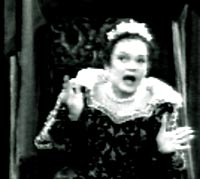 As
she was want to do, Bankhead stayed drunk during most of the two week
rehearsal period - but, as usual, delivered a flawless performance when
it counted. Bob Schiller, the writer of the episode, is quoted in 'The
Lucy Book' as saying: "Tallulah was drunk the entire time.
She would remove her panties for no reason. She kept calling Vivian
Vance 'Cunty'."
As
she was want to do, Bankhead stayed drunk during most of the two week
rehearsal period - but, as usual, delivered a flawless performance when
it counted. Bob Schiller, the writer of the episode, is quoted in 'The
Lucy Book' as saying: "Tallulah was drunk the entire time.
She would remove her panties for no reason. She kept calling Vivian
Vance 'Cunty'."
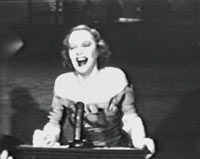 In
1959, Tallulah appeared on the first episode of The Big Party,
a CBS 90-minute live variety show that alternated with Playhouse
90. The series was a flop. She
appeared that same year on Milton Berle's failed comeback series The
Kraft Music Hall,
In
1959, Tallulah appeared on the first episode of The Big Party,
a CBS 90-minute live variety show that alternated with Playhouse
90. The series was a flop. She
appeared that same year on Milton Berle's failed comeback series The
Kraft Music Hall, 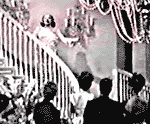 Tallulah
Bankhead's last television guest-shots were on the Andy Williams
Show and The Merv Griffin Show in 1966, followed by The
Smothers Brothers Comedy Hour and two episodes of Batman
in 1967.
Tallulah
Bankhead's last television guest-shots were on the Andy Williams
Show and The Merv Griffin Show in 1966, followed by The
Smothers Brothers Comedy Hour and two episodes of Batman
in 1967. 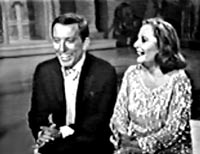 But
as
But
as 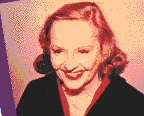 The two-part Batman filming (she was seen as the villainous
Black Widow) in early 1967 was a tough one, the aging actress was becoming
way too ill to work. Pneumonia, influenza and emphysema killed her in
December, 1968.
The two-part Batman filming (she was seen as the villainous
Black Widow) in early 1967 was a tough one, the aging actress was becoming
way too ill to work. Pneumonia, influenza and emphysema killed her in
December, 1968. 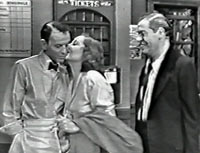 A
memorable dramatic segment on The Milton Berle Show from the
mid-fifties brought
A
memorable dramatic segment on The Milton Berle Show from the
mid-fifties brought 
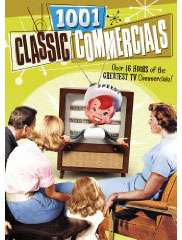
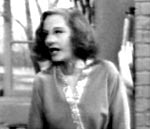 "If
you really want to help the American theater, don't be an
actress, dahling. Be an audience."
"If
you really want to help the American theater, don't be an
actress, dahling. Be an audience." 